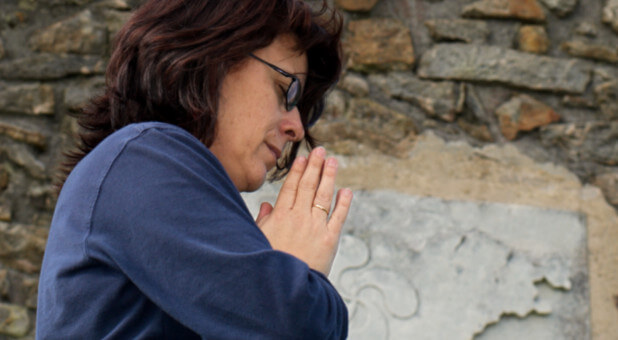In the past, God has used women in unique ways to spearhead a move of His Spirit. It’s time to ask Him to do it again.
WHEN THE LORD CREATED HUMANKIND, He placed unique graces in man and in woman. Although I want to encourage women to move freely within the order established in their local churches, my main goal is to exalt and release a primary grace that I believe God has placed specifically within them–a grace which the Lord Himself has used in past times to ignite revival.
In the garden, God told Adam to name the species of life upon Earth “and whatever Adam called each living creature, that was its name” (Gen. 2:19, NKJV). This “naming” was much more than calling the dog “Spot.” Adam was created with an organizational, administrative capacity that enabled him to identify and define the world around him.
By naming the living things, Adam not only brought them into his consciousness, but he also introduced order and structure to the human experience. In effect, he defined reality.
THE GENESIS DISTINCTIONS Within the genetics of this original man, there also existed the powerful, but dormant qualities of the woman. While Adam slept, the Spirit took from the man a rib. Fashioning it into a woman, the Lord created for Adam a companion who was not only suitable for him, but also one who powerfully expanded man’s creative capacities. Indeed, the woman brought many new graces into Adam’s world that did not formerly exist: the foremost of which was the power to conceive and give birth.
It is important to remember: God created male and female in His image, according to His likeness (see Gen. 1:26). Of course, in certain ways, both Adam and Eve as individuals possessed reflections of the divine nature. They each could think, speak, dream and create. However, it was in the union of Adam and Eve, in their mutual respect of one another’s strengths and graces, that mankind would possess a more perfect expression of the fuller nature of God.
As Adam beheld this first female, he said, “‘This is now bone of my bones, and flesh of my flesh; she shall be called Woman, because she was taken out of Man'” (Gen. 2:23). The term “woman” was a delineation used by Adam, identifying her as a unique variation in the species of man. My wife says, “Think of her as the upgrade.” In some ways, she is right, for the nature of the woman was twice refined.
Adam was created of the earth; the woman, emerged not from the earth, but from the man. She is both more complex and emotionally sophisticated.
Soon Adam began to understand the greatest power of his counterpart: her ability to conceive and bring life into the world. Recognizing this quality, Adam named her Eve, which means “life.” Eve would play an integral part in the unfolding of life’s new beginnings. “She was the mother of all [the] living” (Gen. 3:20).
REFLECTIONS OF THE DIVINE The Lord gave Adam a primary ability to name and establish reality; He gave to woman the unique capacity to conceive and then birth reality. The primary strength of each gender is that man establishes, woman births.
Remember, these qualities were not merely “human”; they were reflections of the divine. Man’s ability to bring order to the world, to take what was random and give it definition and structure is a divine facility. Woman’s ability to conceive and incubate life, and then deliver life through birth is also an aspect of the divine nature.
One translation says that Eve means to “enliven.” Yet Adam named the woman Eve before they had children. God gave the woman an ability not just to have babies, but also to release life in a variety of its expressions. Alone, Adam had been downcast; it was not good that he was alone. Eve enlivened Adam in ways no other creature on Earth could.
Adam could build a house; Eve made it a home. When Adam named Eve “Life,” he was not only speaking prophetically of the first mother, but he spoke out of his own experience: Eve brought life into the structure of Adam’s world.
When it comes to the spiritual realm, I see this same divine encoding replicated in the ministries of men and women. Jesus laid the foundation of the church with 12 men, whom He called to be apostles. This didn’t mean there would never be women in leadership, but that one of the skills given man from God was, as stated, the ability to bring order and structure.
On the other hand, prior to Christ’s birth we find Anna, a prophetess, engaged in much prayer and fasting. In my opinion, it is quite possible that this woman was not alone in her intercession, but the leader of a prophetic prayer ministry that lived in anticipation of her times.











































